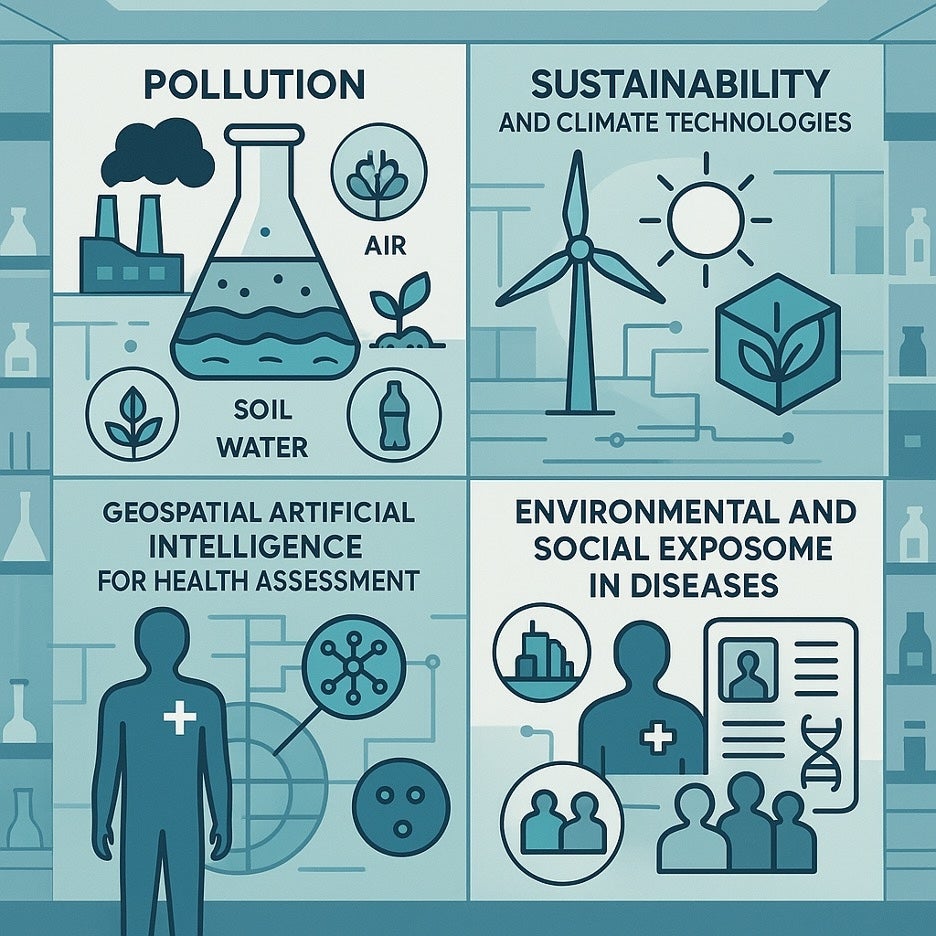Machine learning and Artificial Intelligence allow unprecedented opportunities to integrate multiple data streams and unravel the complexities of complex cardiometabolic diseases. Our laboratory uses a variety of data sources including personal biometric health data, precision radiomic measures, cell phone mobility data as well as precision molecular profiling data derive from and high-throughput sequencing, to understand the impact of aggregate exposures on cardiovascular health. A particular focus is on data integration and multiomic models for predictive precision health. Programs in CHAI include Pollution impact on cardiometabolic health (Air, Soil, Water, Plastic/Chemicals), Geospatial Artificial Intelligence Approaches for Health Assessment, Environmental and Social Exposome in Diseases and Precision Tools for Integrated Assessment of Cardiovascular Health.
The laboratory uses state of art AI tools and pipelines for generating novel approaches to refine approaches to measure and quantify the impact of poorly defined environmental exposures. Our laboratory incorporates multiple precision imaging measures from images such as CT scans and radiomic analysis of features to develop personalized and calibrated measures of cardiometabolic health.


